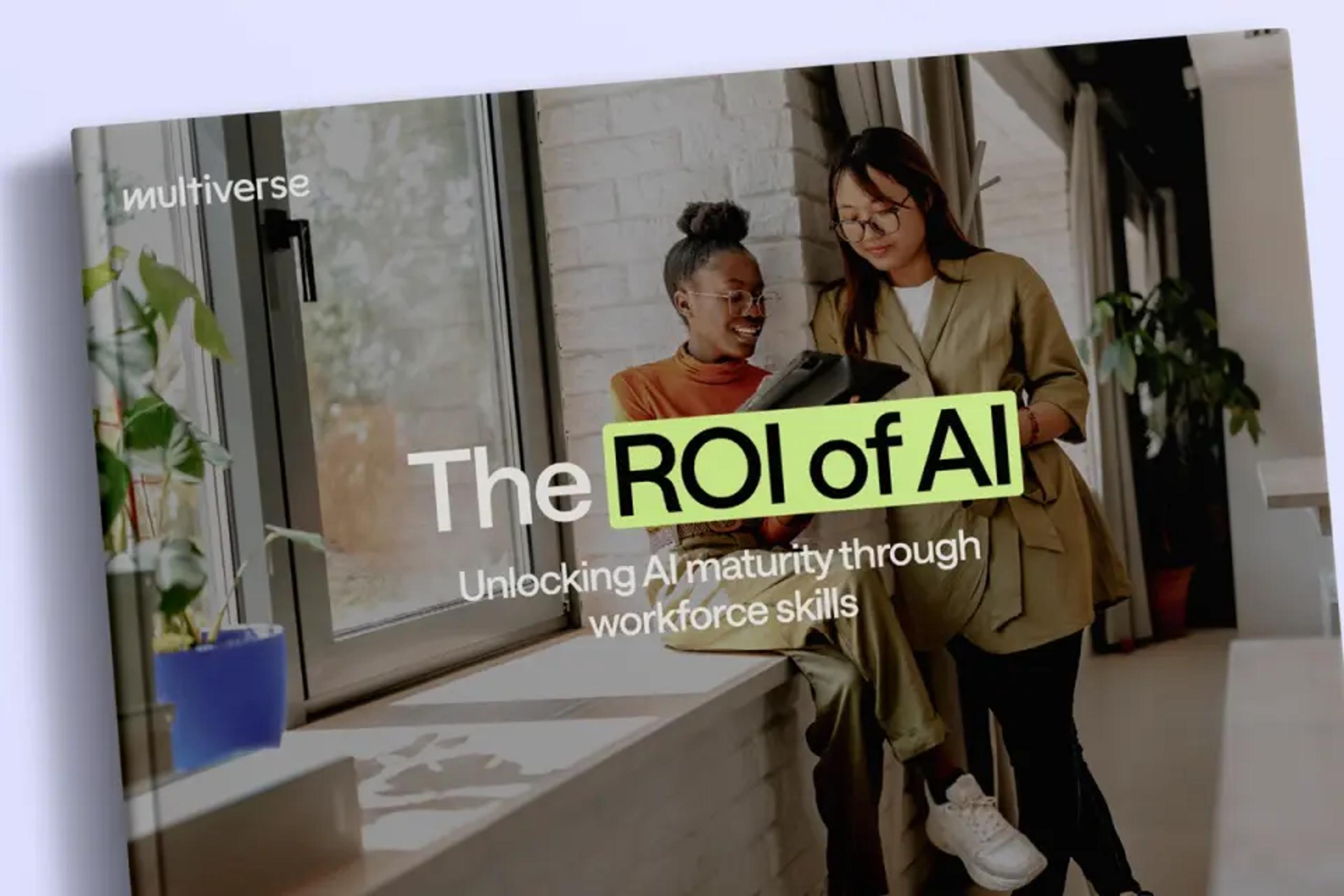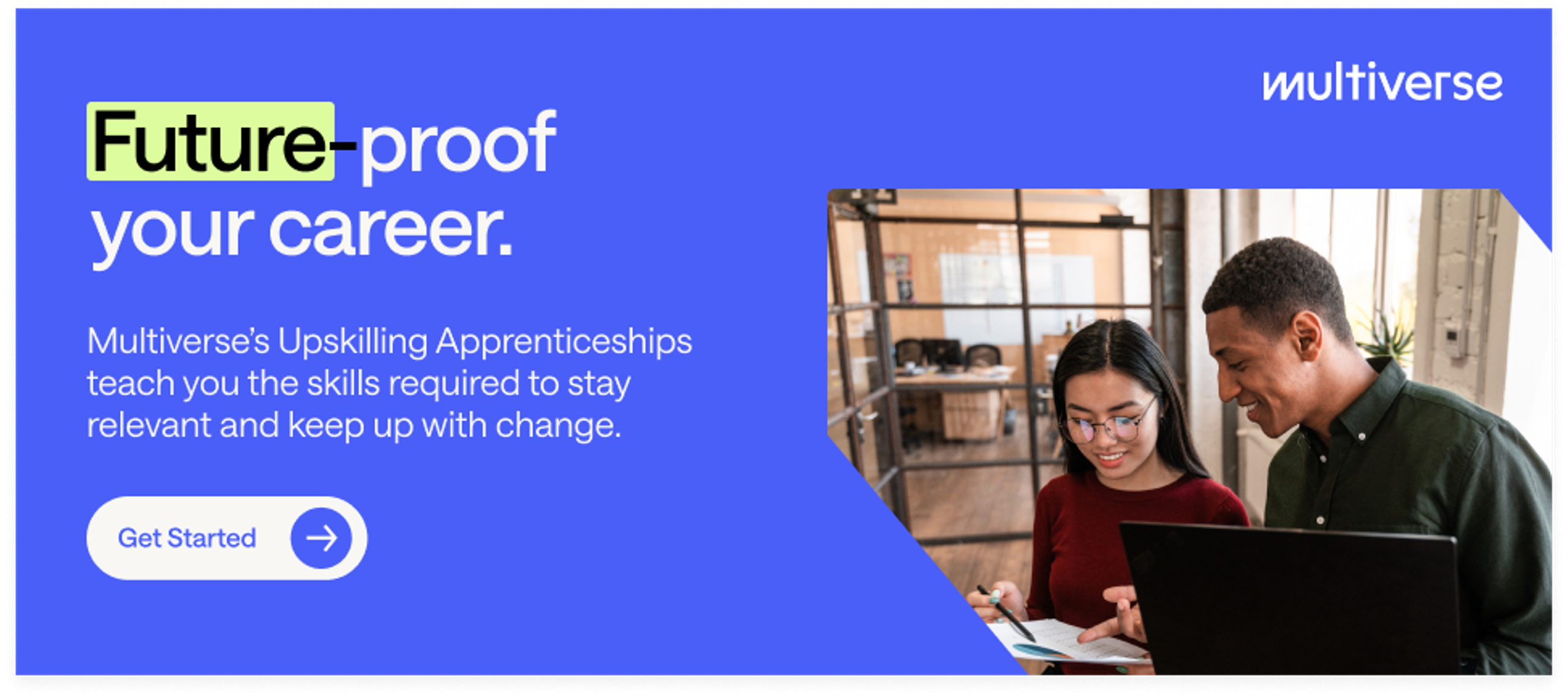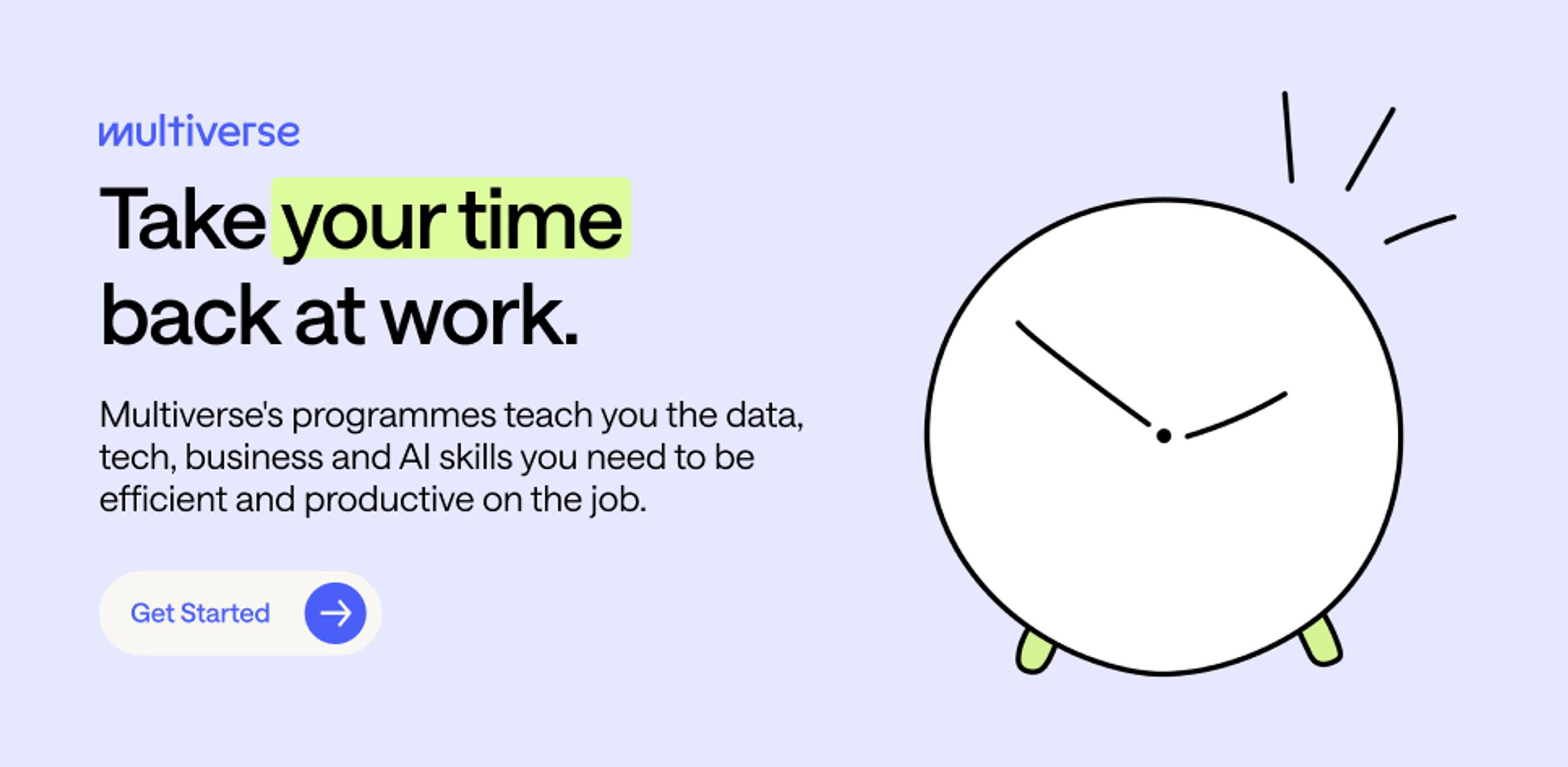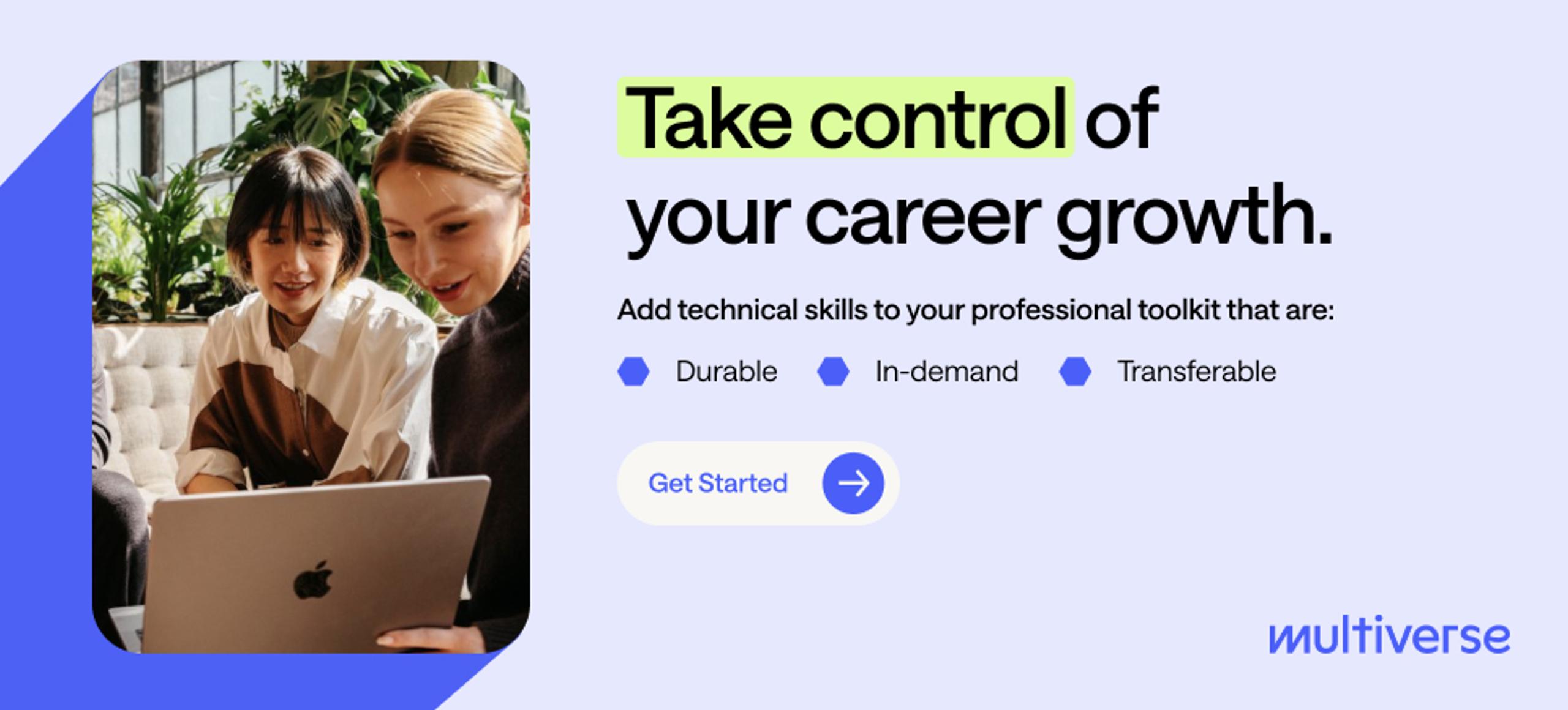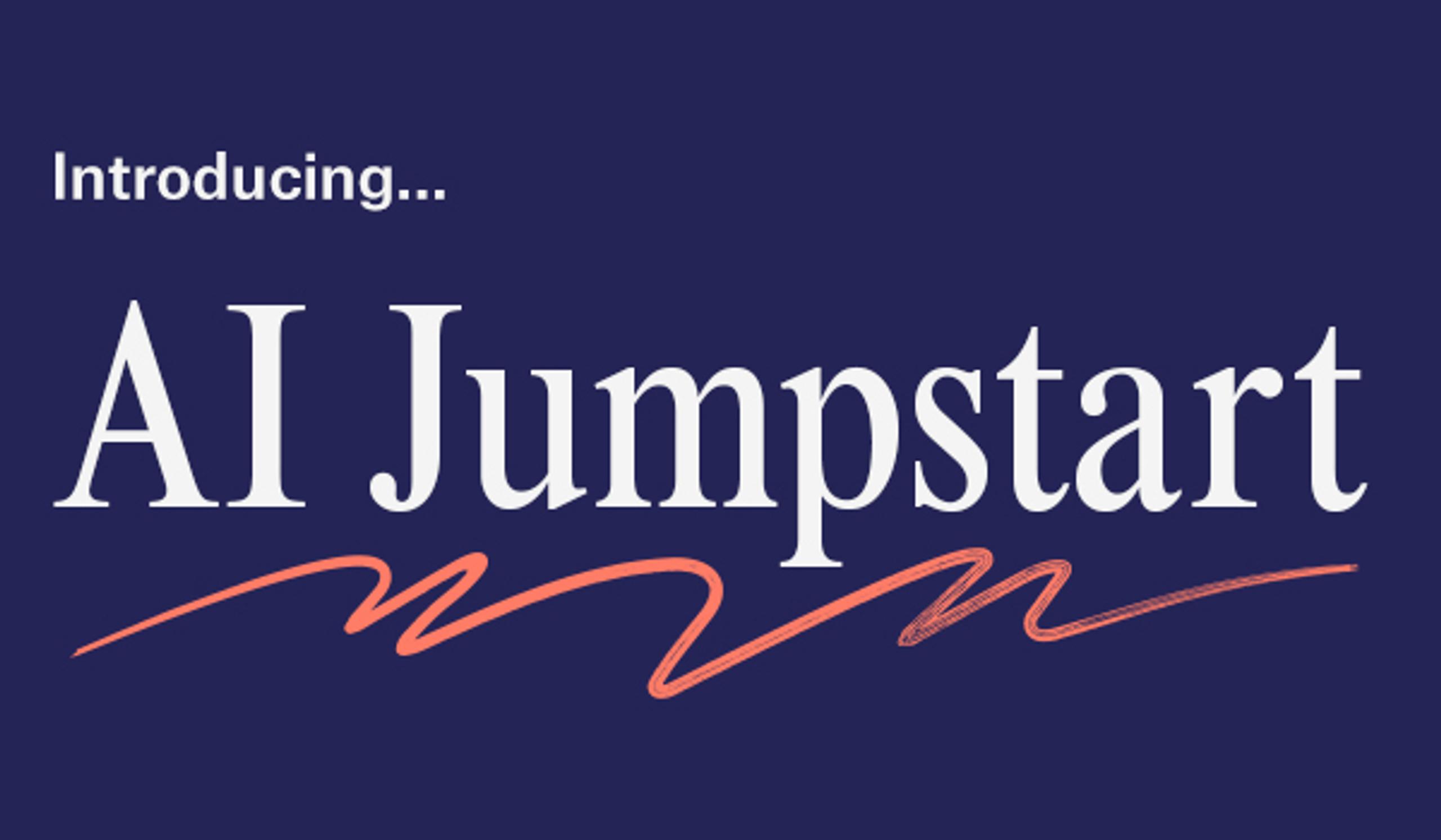Artificial intelligence (AI) has rapidly evolved from a thrilling science fiction concept to an everyday business tool.
According to McKinsey’s Global Survey on AI(opens new window), 72% of organisations worldwide have integrated this technology into at least one business function. This trend is particularly evident in Europe, where 90% of professionals report using generative AI tools for work or personal reasons.
The growing adoption of AI in business has significantly increased the demand for professionals with relevant expertise. Microsoft’s 2024 Work Trend Index Annual Report(opens new window) found that 66% of business leaders are unwilling to hire candidates who lack AI skills. Additionally, 71% of respondents said they would prefer to hire a less experienced candidate with AI expertise over a more experienced candidate without these skills.
Upskilling can help you exploit this trend and pursue new career opportunities. This guide explores common uses of AI in business processes and the benefits of adopting this versatile technology. We’ll also spotlight popular AI platforms and resources for developing your skills.
Core business use cases for AI
Numerous organisations have already integrated artificial intelligence into their business functions, and many others are in the process of doing so. A 2024 Slack survey(opens new window) revealed that 96% of executives feel a pressing need to adopt AI in business operations, and 35% aim to accomplish this goal within the next 18 months.
Here are a few innovative ways companies leverage AI to improve business functions and gain a competitive edge.
Customer service and experience
When you contact a company’s customer service, you may interact with AI technology without even realising it. A Forbes Advisor survey(opens new window) found that 56% of businesses use AI to improve the customer experience and deliver timely service.
Many companies rely on AI-powered chatbots and virtual assistants to answer customer inquiries and offer personalised recommendations. These tools provide instant responses, eliminating the need for customers to wait on hold for a human representative.
For example, Sephora France(opens new window) has implemented an AI-powered chatbot for Facebook and Messenger. This chatbot uses customer data to answer questions about frequent shopper points, order status, and other account-related matters. This tool also serves as a virtual beauty coach by providing personalised tips and tutorial videos.
Data analysis and decision-making
Companies in all industries use AI applications for data collection and analysis. These tools allow users to collect large amounts of data from multiple sources and process it efficiently. Additionally, AI can identify patterns and trends that Data Analysts may overlook, allowing businesses to gain fresh insights.
The US-based insurance company State Farm(opens new window) uses AI to streamline claims processing and other time-consuming tasks. An AI platform digitises claims documents, extracts data, and analyses the information for accuracy. This tool allows the insurer to process claims more efficiently and make data-driven decisions about claims approvals.
Process automation
Many organisations are harnessing AI applications to automate repetitive tasks that don’t require human intervention, such as:
- Filtering emails
- Generating reports
- Inspecting products for quality
- Processing invoices
- Sending follow-up emails
- Tracking inventory
- Transcribing meeting notes
AI automation improves efficiency and reduces the risk of error. It also allows employees to focus on more creative or critical tasks requiring human input. These benefits can help companies save money and scale their operations quickly.
The Forbes Advisor survey found that 51% of businesses have already adopted AI for this purpose. For instance, Walmart(opens new window) has developed innovative AI-powered logistics technology to optimise driving routes. The software automatically maps the most efficient routes based on traffic patterns, weather, store delivery windows, and other data. This technology reduced the company’s CO² emissions by 94 million pounds.
Marketing and sales
Generative AI has taken the marketing and sales world by storm. According to the McKinsey Global Survey on AI(opens new window), 34% of companies now use the technology in these fields, a percentage that has doubled since 2023.
Sales teams have integrated AI applications into many business processes. This technology allows them to identify leads, score prospects, and personalise outreach. Sales Representatives can also use AI-powered predictive analytics to forecast customer behaviour and market trends. These actionable insights enable them to optimise pricing and tailor their sales strategies.
Artificial intelligence helps Marketers analyse data and develop tailored marketing strategies. For instance, AI systems can analyse customer reviews and purchases to extract meaningful insights about consumer preferences. Marketers use these findings to create personalised marketing materials that engage customers more effectively.
Additionally, many marketing teams use AI tools for content generation. Large language models (LLMs) like GPT-4 allow users to generate persuasive blog posts, emails, social media captions, and other marketing materials. Marketers also rely on image-generation tools like Midjourney and DALL-E to create compelling advertisements.
In 2023, Coca-Cola (opens new window)made headlines for “Create Real Magic,” an innovative AI marketing campaign. The company partnered with OpenAI to launch an AI platform that combined the capabilities of DALLE-E with GPT-4. Coca-Cola invited fans to create AI artwork with branded elements using the platform. This campaign drew on user-generated content to boost engagement and generate hype about Coca-Cola products.
Human resources
AI systems are reshaping how companies hire and manage their human workforce. A 2024 SHRM study(opens new window) found that approximately 25% of businesses use artificial intelligence for human resources (HR) tasks. Large organisations with 5,000 or more employees are the most likely to adopt AI for this purpose.
According to SHRM, 64% of companies implementing AI for human resources use this technology to automate recruitment processes. AI-powered applicant tracking systems (ATS) analyse resumes and rank candidates based on their qualifications. This software also uses predictive analytics to forecast a candidate’s performance. These functions accelerate recruitment by helping HR Representatives quickly identify top talent.
Additionally, 49% of surveyed businesses use AI to support learning and professional development activities. For instance, AI tools can generate training materials for human workers and track their development. This technology also helps managers deliver actionable feedback by assessing performance data and identifying employees’ strengths and weaknesses.
Finally, AI implementation can help companies diversify their workforce. One anonymous global investing firm used the AI platform pymetrics(opens new window) to assess job candidates and recommend suitable applicants. After implementing the tool, the firm increased the number of women hired by 62%. This drastic improvement in gender diversity demonstrates how AI can promote more inclusive hiring practices.
Risk management
The AI revolution has transformed how organisations approach risk assessment and management. Machine learning algorithms allow businesses to analyse large volumes of data and identify risks more accurately than previously possible. For instance, financial institutions can use AI-powered fraud detection systems to detect suspicious activity and block potentially fraudulent transactions.
Artificial intelligence also enables companies to track data in real time and identify emerging threats quickly. For example, Innocens BV(opens new window) partnered with IBM to create an edge computing solution that analyses data from medical sensors. This technology helps healthcare providers identify infants at risk of developing sepsis faster, leading to better patient outcomes.
Benefits driving AI-adoption in business workflows
Companies that integrate AI into their business operations can experience many benefits, including:
- Improved customer experiences - AI enables companies to deliver more personalised and timely customer experiences. Businesses can use this technology to develop tailored marketing campaigns, provide around-the-clock customer support, and anticipate client needs. These applications increase customer loyalty and satisfaction, driving long-term business growth.
- Increased efficiency and productivity - Artificial intelligence can significantly boost productivity by automating repetitive tasks and streamlining workflows. A 2023 study(opens new window) found that professionals who used AI completed tasks 25% more quickly than workers who didn’t use it. Additionally, the AI users had 40% higher quality results than the control group. This case study suggests that AI implementation can improve performance and promote organisational success.
- Reduced costs - A Forbes article(opens new window) predicts that artificial intelligence will reduce business costs by 37% in 2024. This technology can lower operational expenses by boosting efficiency and improving resource allocation. Additionally, AI helps companies identify and address costly inefficiencies and waste.
While business AI tools provide many benefits, they still need human intelligence to safeguard against potential drawbacks.
AI hallucinations(opens new window) are one of the most significant concerns. This phenomenon occurs when AI models generate false or misleading results. For instance, a model could provide incorrect medical advice or recommend a trucking route that leads drivers into unsafe conditions. Businesses must use human oversight to catch these errors and verify the accuracy of AI-generated recommendations.
Skills gaps are another persistent challenge many companies face — especially small businesses with limited resources. According to a 2024 Opinium survey(opens new window), 31% of U.K. professionals haven’t been trained to use AI in their roles, and 23% lack confidence in using this technology. Employees who lack AI skills may not use these tools efficiently, decreasing productivity and increasing the risk of errors.
What are some of the most common AI tools in use today?
Business professionals use many AI tools to improve workflows and reduce manual tasks. Here are three popular applications.
GitHub Copilot
According to Stack Overflow’s 2024 Developer Survey(opens new window), 82% of Software Developers use AI applications to write code. GitHub Copilot(opens new window) is one of the most popular tools for this purpose. This application uses natural language processing to analyse and respond to user input.
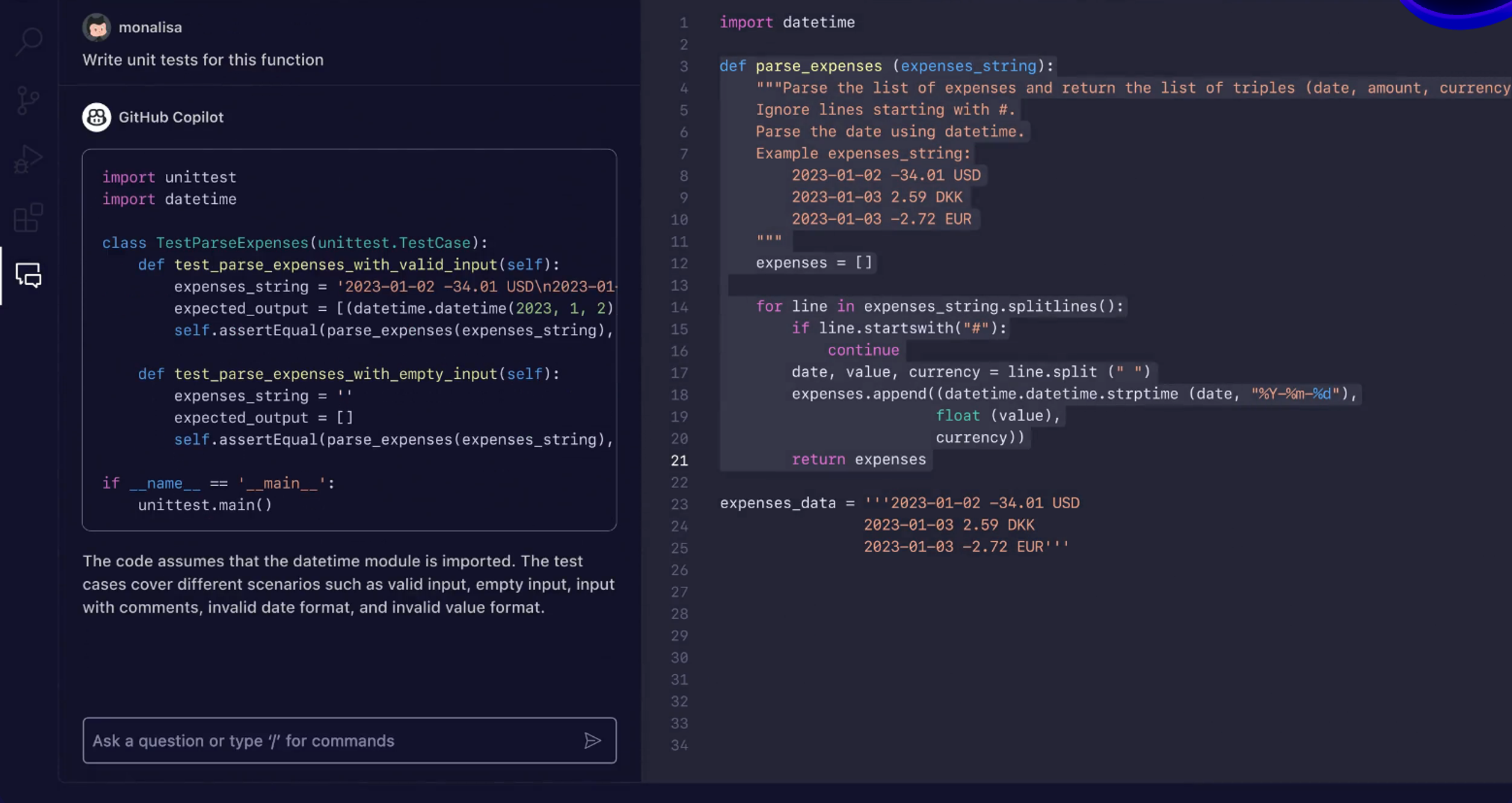
Developers can enter partially completed code into the chat, and the platform will generate recommendations to complete it. GitHub Copilot also detects bugs and proposes solutions, increasing accuracy.
Midjourney
Midjourney(opens new window) is a generative AI platform that converts text into vivid images and videos. Marketers can use this tool to create a wide variety of visual marketing content. For instance, marketers can ask Midjourney to generate images for articles, product catalogues, and social media posts. Users simply input a written description of the images they’re envisioning, their desired style, and other instructions.

This platform saves companies significant time and money by allowing marketing teams to create high-quality content in seconds instead of hiring external creators or producing it in-house.
HubSpot
HubSpot(opens new window) offers a suite of AI-powered tools to support various business functions. Popular features include:
- Caption generator for social media posts
- Chatbot builder to streamline scheduling
- Content remixer
- Copywriting generator for blog posts, emails, meta descriptions, and other content
- Search engine optimization recommendations
- Webpage builder

Marketing and sales professionals can use these tools to generate content and engage customers more efficiently. The platform also uses AI to analyse data and generate reports so businesses can track their marketing campaigns’ performance.
AI for business: Where do we go from here?
Business AI isn’t going away anytime soon. The International Trade Administration(opens new window) predicts that the value of the U.K. artificial intelligence market will increase from $21 billion in 2024 to over $1 trillion in 2035. Only the United States and China will outpace this rapid growth.
The need for skilled AI professionals will increase as AI capabilities continue to develop. According to PwC, postings for jobs requiring AI skills like machine learning have increased 3.6 times faster than postings for all roles. Sectors that have already embraced this technology have increased their productivity by nearly fivefold.
Additionally, 64% of U.K. CEOs(opens new window) believe that most of their workforce will need to gain new AI skills in the next three years to keep up with rapid technological advancements. Professionals who gain these skills now will be better positioned to take advantage of emerging trends and advance their careers.
Drive innovation and get ahead at work with AI skills
Artificial intelligence has already begun to reshape the business landscape in the U.K. and beyond. Companies can integrate AI into numerous business functions, including customer service, inventory management, and risk management.
Many AI platforms are free or have affordable subscriptions, allowing businesses of all sizes to take advantage of this technology. Upskillers can also use these applications to begin developing their AI skills. For instance, you can purchase a basic Midjourney subscription to hone your prompt engineering skills.
A Multiverse apprenticeship can also help you gain in-demand technical skills. Our AI upskilling programmes allows you to develop new skills and gain hands-on experience without leaving your current role.
This program is completely free, so you’ll accelerate your professional development and future-proof your career without paying tuition. All Multiverse apprentices also get access to our exclusive AI Jumpstart module, which teaches AI fundamentals and problem solving skills.
Complete our quick application(opens new window) today to start expanding your business AI skills.
